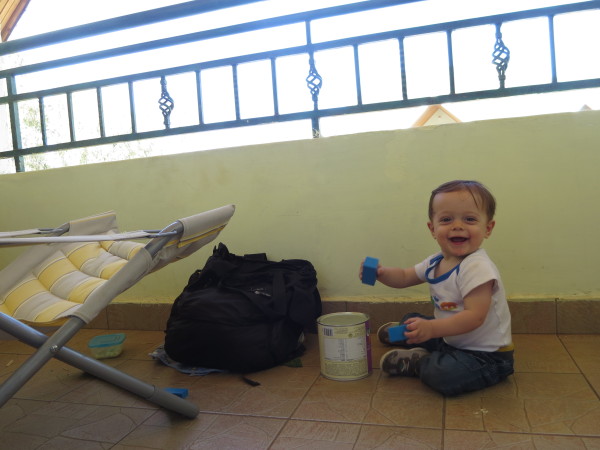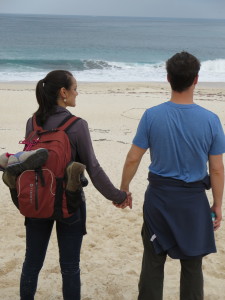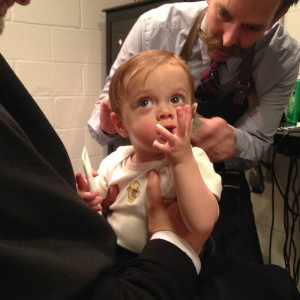After a 24-flight delay (thanks to two dramatic inches of snow in Nashville), we finally embarked on our first trip to Kenya as a family of three. The only benefit of traveling with a baby (and I promise, there is only one) is that they put us in the bulkhead where there was more leg room in front for Jude to move around. A baby bassinet hangs from just below the TV - but Jude was a little too big to fit comfortably in the makeshift crib. So he ended up on James' lap for most of the 20+ hour journey (Saint James).
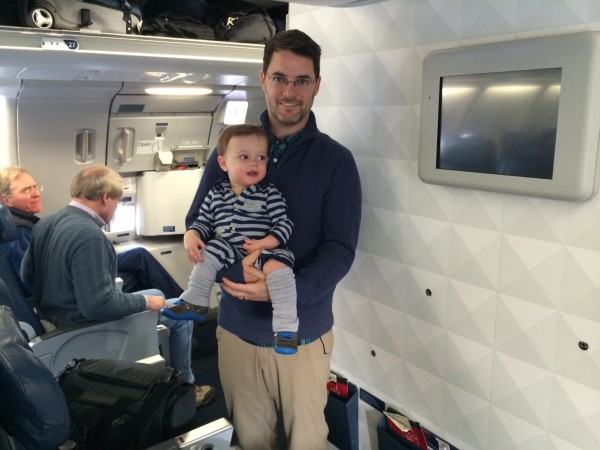
And after flights from Nashville to Detroit to Amsterdam to Nairobi - and after forgetting to pack CASH for visa entries - we made it! (And so did that other guy).
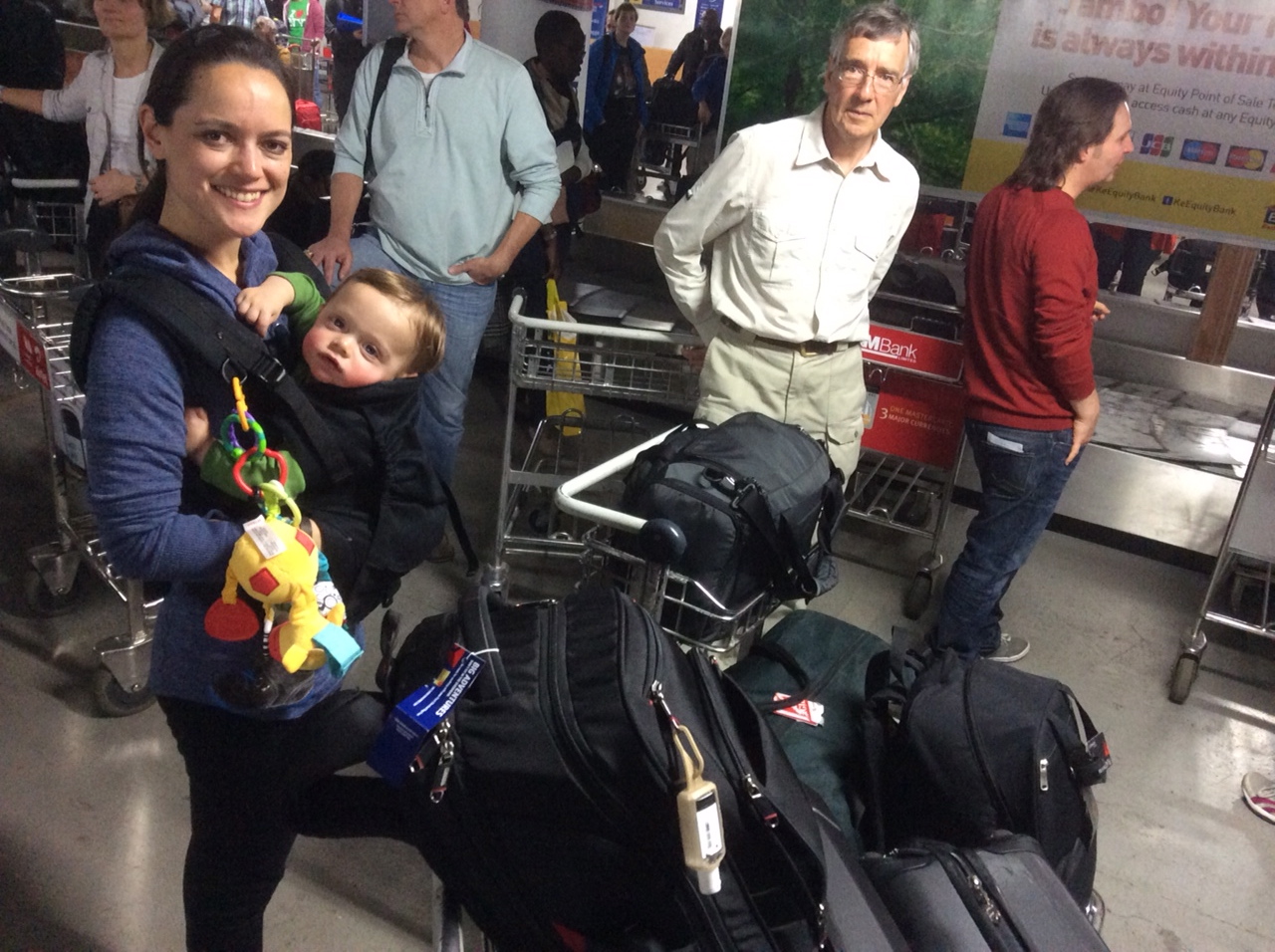
By the way, who gets on a plane for a month to Africa with only $47 dollars in her wallet? Yep, that crazy lady with a stuffed giraffe hanging from her side. Thankfully James happened to have some random Kenyan shillings to cover our difference.
We spent Sunday getting acquainted with our Airbnb furnished apartment and reuniting with one of my best friends, Autumn, who is joining us for the week during her R & R from her intense humanitarian work in South Sudan. James introduced me to some other working moms he knows through his NGO contacts and arranged for driver and nanny support while he works from Lwala. We oriented ourselves to the peculiarities of the water pump and heater, the occasional power outages and the 84 steps (yes, I counted) that it takes to get up to our top floor apartment. Here is our view from the patio:
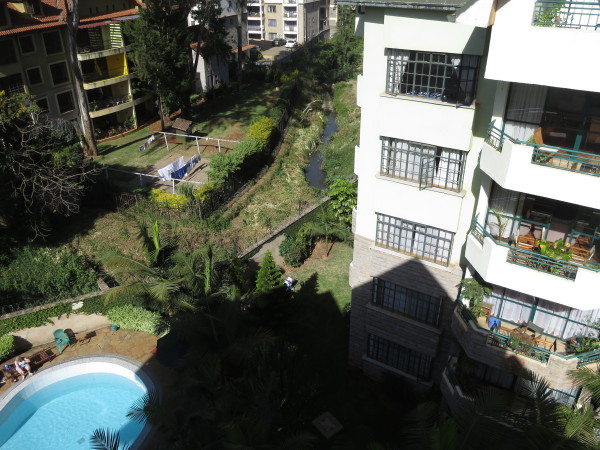
Dealing with the jet lag with an eleven month old has made that previous international flight feel quite mild. An upside down clock for a baby is not something you can reason your way out of. So each morning, Jude and I have been walking down the 84 steps and across the street to a nearby cafe to shake off the long (or rather, short) nights. At that time of day, the air is a perfect 60 degrees before the warmer sun comes out. Jude has won over our regular waitress, Jane, and he loves to interact with anyone there who will give him attention.
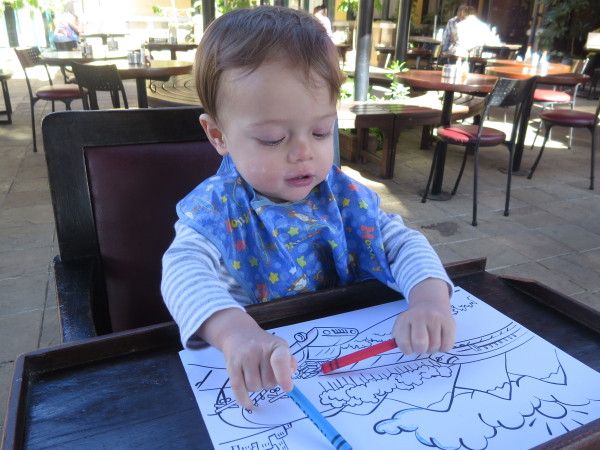
Which is why he was in extroverted baby heaven when the Kenyan national rugby team showed up for an early breakfast yesterday!
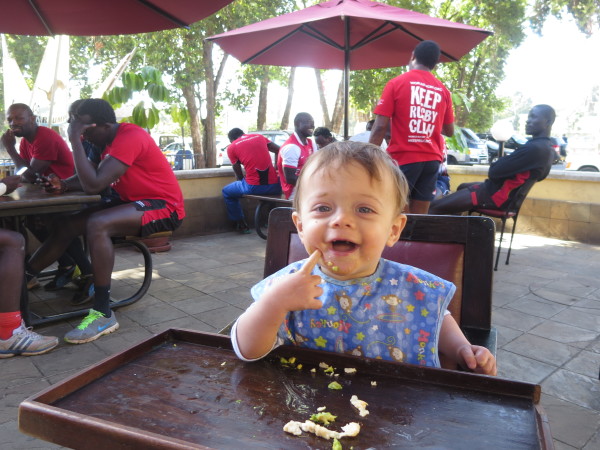
Scrambled eggs AND rugby players who think he's cute? What more could baby Jude ask for?
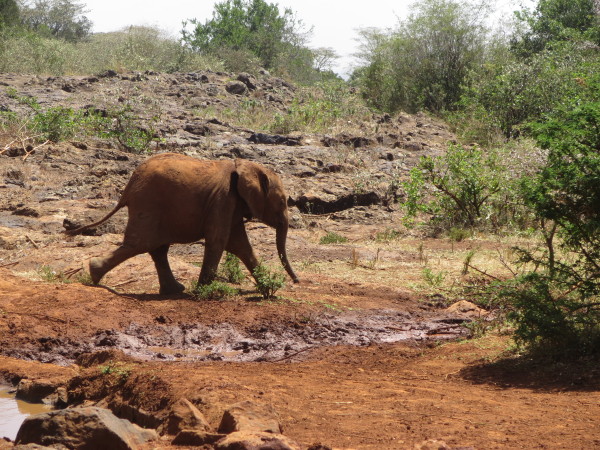
Well, how about playing with baby elephants?
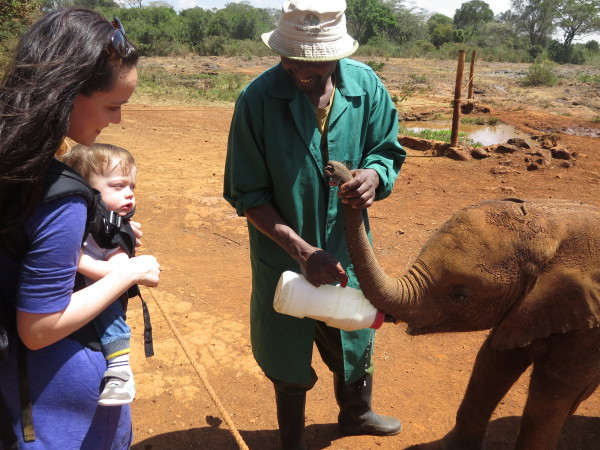
Autumn, Jude and I visited the Sheldrick Trust where there is an elephant orphanage, and an opportunity to interact with the baby elephants. It was such a great experience - an intimate hour-long program that allows you to learn about the protection and preservation of wildlife, and to see (and touch) the 30 elephants in their care.
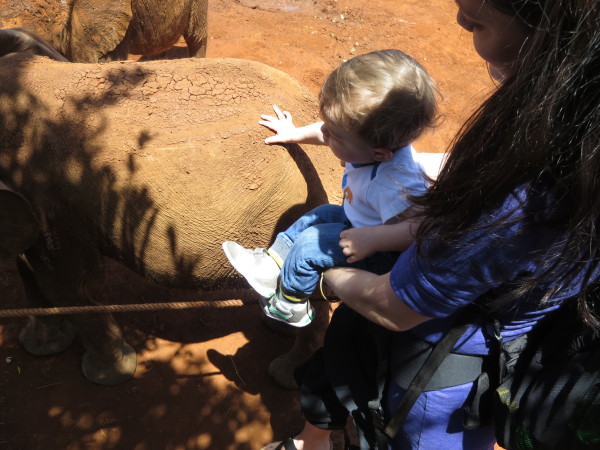
Their skin felt like you were touching a dirt path. Not so sure if Jude was truly taking this in. (He'll probably love to see these pictures of him when he gets older, right?)
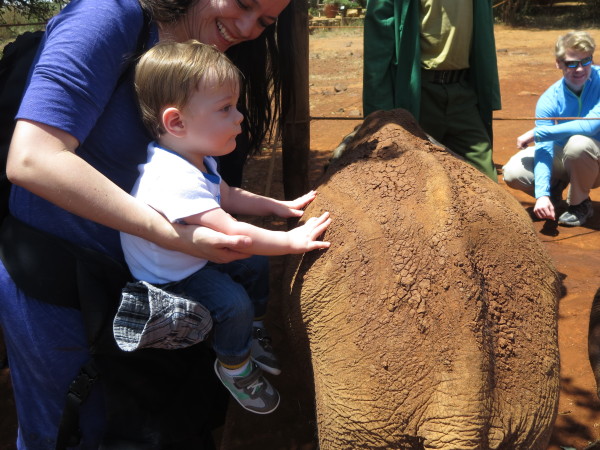
So if the baby elephants weren't enough, we thought we would stop by the Giraffe Center to feed the giraffes. It's a delight to get to be so close to them. Jude wasn't as delighted, but I'd say he was cautiously interested.
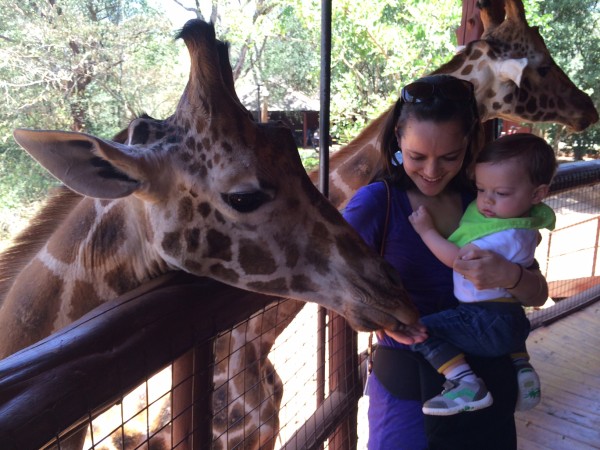
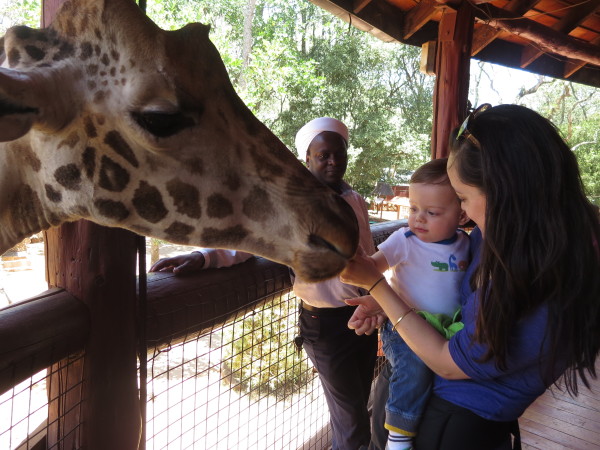
Oh, and it was such a gift to share the experience with Autumn. For so many reasons - but shared histories and common passions in the world make for rich and enduring friendships.
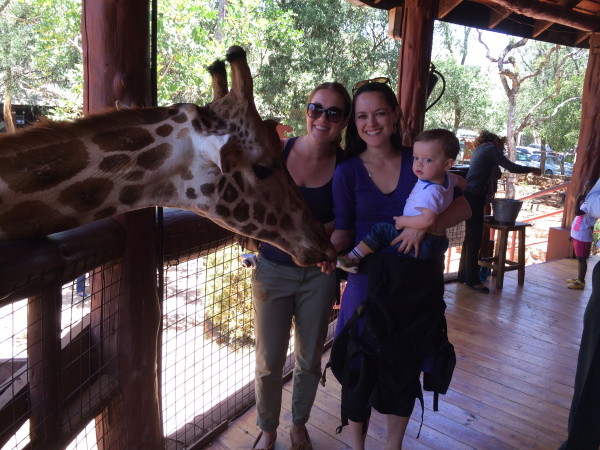
Besides enjoying the elephants and giraffes, it's been lovely to catch up over meals together and enjoy the familiar company of a dear friend.
It's possible that Autumn and I were more excited about the excursion than Jude was because when we got home, Jude returned with great vigor to his favorite activity: blocks in a can.
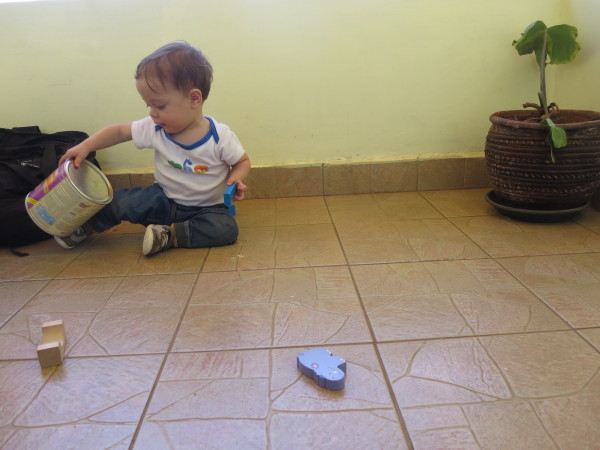
So, I didn't remember to bring any cash for our month in Kenya, but I did, however, find a way to pack Jude's can and blocks from Nashville. (Saint Jena).
